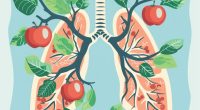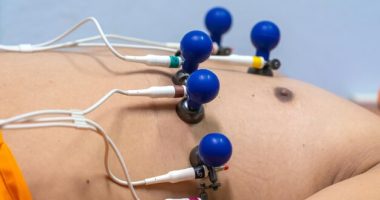Understanding the impact of nutritional intake on rehabilitation efficiency is crucial for enhancing recovery outcomes in convalescent patients. Amidst the rising concern of malnutrition, which affects over 40% of individuals in rehabilitation settings, the significance of tailored nutritional strategies cannot be overstated. This paper, authored by Kozue Okamoto, Miho Kogirima, Yoshiro Tsuji, Shinsuke Ishino, and Hiromasa Inoue, explores how daily energy and protein intake levels influence the recovery rate during convalescent rehabilitation.
By examining 217 patients in a convalescent rehabilitation ward during a focused period from September 2016 to February 2017, the study identifies and analyses different impacts based on varying levels of energy intake. Patients were divided into two groups based on their energy intake relative to their ideal body weight: a high-energy group (H-E) who consumed more than 25 kcal/IBW/day, and a low-energy group (L-E) who consumed up to 25 kcal/IBW/day. The pivotal finding highlighted that patients with higher energy intake tended to maintain or even gain body weight, thereby achieving better rehabilitation outcomes measured by motor score improvements on the Functional Independence Measure (FIM-M).
This research underscores the importance of adequate nutritional management in rehabilitation settings, suggesting that energy and protein intake are integral to optimizing rehabilitation efficiency and improving patient recovery trajectories. As healthcare practitioners continue to face challenges in convalescent care, these findings could lead to better dietary protocols and ultimately, enhanced patient care and recovery rates.
The growing acknowledgment of the impact of nutritional intake on rehabilitation efficiency necessitates a comprehensive approach to patient care in convalescent environments. Rehabilitation serves as a critical phase in recovery, aiming to restore the functional independence of patients following significant illness or injury. Malnutrition consistently emerges as a significant barrier to effective rehabilitation; current estimates suggest that approximately 40 to 50% of patients in rehabilitation settings suffer from it, influencing their recovery adversely.
This paper by Kozue Okamoto and colleagues provides essential insights that reinforce the linkage between nutritional adequacy and rehabilitation outcomes. Previous research has frequently highlighted how suboptimal nourishment can lead to diminished physical and cognitive function, impede wound healing, reduce muscle strength, and ultimately extend hospital stays. Therefore, establishing the role that energy and protein intake play enhances not only clinical outcomes but also the quality of life for recovering patients.
The notion that increased energy intake correlates with improved rehabilitation results isn’t revolutionary. However, the study’s meticulous approach to quantifying this relationship provides a pivotal foundation for developing refined nutritional protocols. By examining a substantial sample size over a focused period, the findings present compelling evidence that tailored nutritional strategies are not merely beneficial but may be critical for optimal recovery trajectories.
The setting of the study within a convalescent rehabilitation ward further underscores the practical implications of these findings. Rehabilitation wards are unique in that they handle a diverse array of conditions, from post-operative care to severe debilitations resulting from strokes or other major health episodes. Within these settings, energy and protein requirements can vary markedly, not just between individuals but also across the stages of recovery. It is here that the research by Okamoto et al. becomes invaluable, providing a nuanced understanding of energy consumption’s role in enhancing rehabilitation efficiency.
In this context, the impact of nutritional intake on rehabilitation efficiency becomes a cornerstone for not only improving individual patient outcomes but also for structuring more effective healthcare strategies in rehabilitation settings. As healthcare providers seek to optimize treatment regimens, the integration of strategic nutritional planning stands as a key component in the holistic care of convalescent patients. With increasing pressures on healthcare resources, ensuring that patients can recover more quickly and effectively through optimal nutritional intake could also offer economic benefits, reducing the length of stays in rehabilitation facilities and potentially lowering the risk of rehospitalization.
Overall, the research by Okamoto and colleagues spearheads a critical discussion about how healthcare professionals can harness the power of nutritional science to fortify and expedite the rehabilitation process. This investigation not only impacts patient treatment plans but also broadens the scope of existing healthcare practices to encompass a more nutrition-centered approach in recovery paradigms.
The research conducted by Kozue Okamoto and the team was methodologically structured to systematically assess the impact of nutritional intake on rehabilitation efficiency in a convalescent rehabilitation ward. The primary objective was to examine how variations in energy and protein intake influence the recovery trajectories and rehabilitation outcomes among patients recovering from various illnesses and injuries. This study provides significant insights into the specific dietary needs that can enhance the recovery process in rehabilitation settings.
To commence the study, researchers meticulously selected a sample of 217 patients from a rehabilitation facility, monitoring their progress from September 2016 to February 2017. The patients included in the study had diverse medical backgrounds and were primarily in the recovery phase post-major health episodes such as surgery, stroke, or severe injuries, ensuring a broad representation of the rehabilitating population.
The methodology was divided into several key components to explore the impact of nutritional intake on rehabilitation efficiency thoroughly:
1. **Data Collection**: Standardized tools were used to collect comprehensive data on each patient’s daily dietary intake. Specialized nutritionists performed assessments to document precise measurements of caloric and protein intake per day, customizing portions based on individual nutritional needs and medical recommendations.
2. **Group Segmentation**: Patients were stratified into two distinct groups for comparative analysis based on their caloric intake relative to their ideal body weight (IBW). The high-energy group (H-E) consisted of patients consuming more than 25 kcal/IBW/day, while the low-energy group (L-E) included those consuming up to 25 kcal/IBW/day. This segmentation allowed for a clear differentiation in studying the effects of energy intake levels.
3. **Outcome Measures**: The primary outcome measures focused on were changes in motor skills and functional independence, gauged using the Functional Independence Measure (FIM-Motor score). This scale provided a standardized approach to evaluating improvements in physical capabilities, crucial for assessing rehabilitation efficiency.
4. **Statistical Analysis**: Rigorous statistical techniques were applied to analyze the data collected. The researchers employed regression models and variance analysis to identify significant differences and correlations between energy intake and rehabilitation outcomes. This analytical phase was critical in establishing scientifically valid conclusions about the impact of nutritional intake on rehabilitation efficiency.
5. **Continuous Monitoring and Adjustment**: Throughout the study period, the nutritional plans were regularly adjusted based by ongoing assessments by healthcare professionals, ensuring that the dietary intake met each patient’s evolving rehabilitation needs.
This robust methodological approach enabled the researchers to derive empirical evidence supporting the hypothesis that adequate nutritional intake, particularly in terms of energy and protein, significantly enhances rehabilitation efficiency. The detailed analysis not only underscored the importance of personalized nutrition in recovery but also provided a blueprint for healthcare practitioners to improve convalescent care through dietary adjustments, addressing the cornerstone necessity of optimal nutrition in patient recovery regimens.
The research conducted by Kozue Okamoto and colleagues provided insightful findings that have significant implications for the field of rehabilitation medicine, particularly concerning the impact of nutritional intake on rehabilitation efficiency. By systematically analyzing data from 217 patients in a convalescent rehabilitation ward, the study established clear links between energy and protein intake levels and rehabilitation outcomes.
Key Findings:
1. **Impact of High Energy Intake**: The study delineated that patients in the high-energy group (H-E), who consumed more than 25 kcal/IBW/day, demonstrated superior rehabilitation outcomes compared to the low-energy group (L-E). Specifically, these patients not only maintained their body weight but, in many cases, experienced weight gain. This was directly correlated with improved motor scores measured by the Functional Independence Measure (FIM-Motor score). The data compellingly suggest that patients receiving higher energy intakes are more likely to experience efficient rehabilitation processes, marked by significant enhancements in physical capabilities.
2. **Functional Independence**: Patients with higher energy intake exhibited faster and more significant improvements in functional independence. This is an essential aspect of rehabilitation, as it directly impacts a patient’s ability to perform daily activities post-rehabilitation. Improved functional independence not only enhances quality of life but also reduces the dependency on healthcare services.
3. **Protein Intake**: Although the study primarily focused on energy intake, the role of protein was also considered integral. Higher protein intake within the high-energy group contributed to better overall muscle mass retention and strength, which are crucial for recovery, especially in elderly patients or those recovering from severe illnesses or surgeries.
4. **Nutritional Assessment and Tailoring**: One of the pivotal aspects of the study was its emphasis on the necessity for meticulous nutritional assessment and tailoring. Patients’ dietary plans were regularly adjusted based on ongoing evaluations, which ensured that their nutritional intake was aligned with their recovery needs at various stages of rehabilitation.
The results of this study underscore the impact of nutritional intake on rehabilitation efficiency, highlighting that adequate caloric and protein intake are critical in enhancing the rehabilitation outcomes. Patients who meet or exceed their energy and protein requirements tend to have better recovery trajectories, characterized by improvements in motor skills and an increased rate of achieving functional independence.
Moreover, the research provides a robust empirical foundation for healthcare providers to develop refined nutritional protocols for rehabilitation settings. By integrating strategic nutritional planning into patient care, practitioners can significantly augment the rehabilitation process, thereby optimizing recovery outcomes and enhancing the overall efficiency of rehabilitation programs.
The findings from this study advocate for a paradigm shift in how nutritional services are integrated within rehabilitation settings. It emphasizes that a focus on personalized nutrition is not merely an adjunct to traditional rehabilitation strategies but a fundamental component that can facilitate more rapid and effective recovery for convalescent patients. This approach not only has the potential to improve patient outcomes but also to contribute to the economic efficiency of healthcare systems by potentially reducing the length of stay and rehospitalization rates in rehabilitation facilities.
Overall, the study by Kozue Okamoto et al. is instrumental in reinforcing the pivotal role of nutrition in the recovery and rehabilitation process, emphasizing the impact of nutritional intake on rehabilitation efficiency as a key factor in convalescent care.
The compelling findings from the research conducted by Kozue Okamoto and colleagues markedly enrich our understanding of the impact of nutritional intake on rehabilitation efficiency. The evidence firmly supports the notion that personalized nutritional strategies are not merely supplementary but essential components of effective rehabilitation programs. This study not only elucidates the quantifiable benefits of increased energy and protein intake on patient recovery but also serves as a catalyst for ongoing discussions and further research in this area.
Future initiatives should focus on broadening the scope of such studies to include a wider array of rehabilitation settings and patient demographics, ensuring the applicability of these findings across various conditions and care requirements. Future research could also delve deeper into the specific types of nutrients that most significantly affect rehabilitation outcomes. Moreover, it would be valuable to integrate technology for real-time monitoring of nutritional intake and its effects, providing dynamic insights into how diet adjustments can directly influence rehabilitation progress.
An interdisciplinary approach involving dieticians, physicians, and rehabilitation experts working collaboratively could foster more holistic and effective rehabilitation strategies. This integration would ensure that nutritional plans are not only scientifically sound but also tailored to individual patient needs, creating a more patient-centered approach in rehabilitation care.
In addition, policy implications stemming from this research should be considered. The establishment of guidelines for nutritional care in rehabilitation settings could be a significant step forward in standardizing practices that maximize recovery outcomes. Healthcare systems should view the integration of these findings into clinical practice not just as a necessity for patient care but also as an investment in the overall efficiency and cost-effectiveness of rehabilitation services.
The study by Kozue Okamoto and team highlights an undeniable link between nutritional intake and rehabilitation efficiency. It underscores that adequate provision of energy and protein is critical not only for the immediate improvement in rehabilitation outcomes but also for the long-term health and independence of recovering patients. Therefore, the impact of nutritional intake on rehabilitation efficiency must be a principal concern for healthcare providers aiming to optimize recovery trajectories and enhance the quality of life for patients in rehabilitation.
By adjusting the nutritional strategies to meet the energy and protein needs of each patient, healthcare professionals can significantly influence the pace and quality of recovery. Taking these findings forward, it is hopeful that future research will continue to refine these strategies and expand our understanding, ultimately leading to an era where integrated nutritional and rehabilitation care is the norm, not the exception.
The paradigm shift toward incorporating strategic nutritional planning into rehabilitation settings implies not only better patient outcomes but also a more cost-effective healthcare approach, reducing both rehospitalization rates and length of stays in rehabilitation facilities. As such, the impact of nutritional intake on rehabilitation efficiency stands as a cornerstone for future healthcare innovations and strategies, ensuring that patients receive the most comprehensive and effective recuperative care possible.
**References**
1. Cawood, A. L., Elia, M., & Stratton, R. J. (2012). Systematic review and meta-analysis of the effects of high-protein oral nutritional supplements. *Ageing Research Reviews, 11*(2), 278-296. [link](https://pubmed.ncbi.nlm.nih.gov/22212386/)
This systematic review and meta-analysis evaluate the impact of high-protein oral nutritional supplements on weight gain, protein intake, and clinical outcomes in various patient groups, emphasizing the significance of protein in rehabilitation settings.
2. Bauer, J., Biolo, G., Cederholm, T., Cesari, M., Cruz-Jentoft, A. J., Morley, J. E., Phillips, S., Sieber, C., Stehle, P., Teta, D., Visvanathan, R., Volpi, E., Boirie, Y. (2013). Evidence-based recommendations for optimal dietary protein intake in older people: a position paper from the PROT-AGE Study Group. *Journal of the American Medical Directors Association, 14*(8), 542-559. [link](https://pubmed.ncbi.nlm.nih.gov/23867520/)
This position paper from the PROT-AGE Study Group provides evidence-based recommendations for dietary protein intake in older adults, crucial for optimizing rehabilitation and recovery in geriatric populations.
3. Deutz, N. E., Bauer, J. M., Barazzoni, R., Biolo, G., Boirie, Y., Bosy-Westphal, A., Cederholm, T., Cruz-Jentoft, A., Krznariç, Z., Nair, K. S., Singer, P., Teta, D., Tipton, K., Calder, P. C. (2014). Protein intake and exercise for optimal muscle function with aging: Recommendations from the ESPEN Expert Group. *Clinical Nutrition, 33*(6), 929-936. [link](https://pubmed.ncbi.nlm.nih.gov/24814383/)
This expert group paper examines the interaction between protein intake and physical exercise, providing recommendations for maximizing muscle function and rehabilitation outcomes with aging.
4. Marshall, S., Young, A., Bauer, J., & Isenring, E. (2016). Nutrition and sarcopenia—A systematic review and meta-analysis. *Clinical Nutrition ESPEN, 11*, e1-e9. [link](https://pubmed.ncbi.nlm.nih.gov/28531779/)
This systematic review focuses on the relationship between nutrition and sarcopenia, highlighting the crucial role of nutritional intake in the prevention and treatment of muscle loss and its relevance in rehabilitation settings.
5. Milne, A. C., Potter, J., Vivanti, A., & Avenell, A. (2009). Protein and energy supplementation in elderly people at risk from malnutrition. *The Cochrane Database of Systematic Reviews, (2), CD003288*. [link](https://pubmed.ncbi.nlm.nih.gov/19370584/)
This Cochrane review assesses the effects of protein and energy supplementation in elderly people at risk of malnutrition, underlining its potential to enhance recovery and rehabilitation outcomes.
These references provide a comprehensive overview of the current research surrounding the impacts of nutrition, particularly protein, on rehabilitation efficiency and patient outcomes in various healthcare settings. The studies and reviews included emphasize the importance of tailored nutritional strategies and underscore their role as fundamental components of effective rehabilitation programs.








